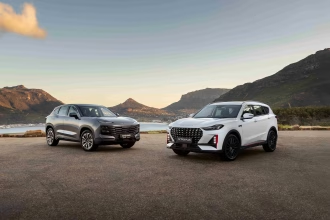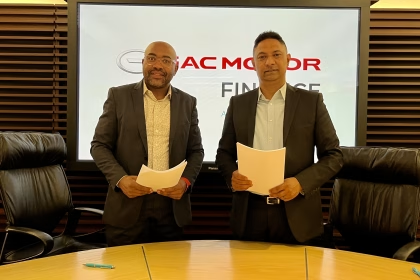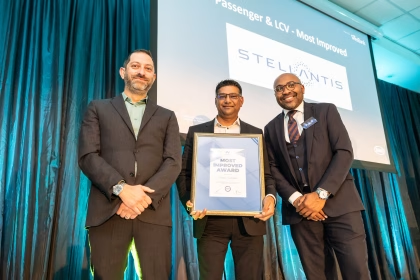This week, WesBank, in partnership with FNB, hosted EVolution, a first-of-its-kind industry event aimed at empowering fleet operators in South Africa in their drive towards electric mobility. Held at the iconic Kyalami Grand Prix Circuit in Johannesburg, the event provided a platform for meaningful dialogue, highlighting key insights and addressing key considerations for businesses looking to electrify their vehicle fleets.
By bringing together a distinguished group of medium and large fleet operators, EVolution provided a unique opportunity for key industry stakeholders to immerse themselves in the world of electric vehicles (EVs). Participants gained first-hand experience behind the wheel of the latest Battery Electric Vehicles (BEVs), Hybrid Electric Vehicles (HEVs), and Plug-in Hybrid Electric Vehicles (PHEVs). The event also featured a masterclass on financing EVs, alongside insightful presentations from industry experts and logistics companies already leading the adoption of EVs in South Africa.

The event underscored the global shift towards electric mobility, with global EV sales reaching 17 million in 2024, a significant increase from 14 million in 2023. According to GreenCape, this growth is largely attributed to the increased availability of EV models and their growing cost competitiveness due to rising fuel prices. In addition, many national governments have implemented policies to phase out the sale of ICE vehicles, as noted by the International Council on Clean Transportation. Government incentives have also played a critical role in the growth of NEV sales globally, a trend starting to unfold in South Africa as the government prepares to make further pronouncements regarding the country’s policy position on EVs.
Despite being in its infancy, the South African EV market has demonstrated significant growth, with 3,487 EVs sold in Q1 2025, compared to 3,042 and 1,665 in the corresponding periods of 2024 and 2023 respectively, according to naamsa data. This growth is anticipated to accelerate with government-led initiatives such as tax incentives on local EV manufacturing, plans to expand charging infrastructure, and the drive to reduce carbon emissions through the private sector in South Africa.

However, while the long-term outlook for EVs in South Africa is positive, challenges exist regarding infrastructure readiness, the commercial viability of EVs, and effective strategies for transitioning to electrified fleets.
Linda Cele, Products Head Key Accounts & Partnerships: Fleet Management and Leasing at WesBank, said: “Fleet electrification in South Africa is still in its developmental stages, with much of the current work focused on pilot projects across various industries. Our EVolution event provided a vital platform to address the uncertainties that hinder widespread adoption and offer practical insights based on local and global experiences.”

The event highlighted several pilot and research projects currently underway in South Africa, providing a local perspective on global NEV market trends. Projects included:
- Private logistics companies running pilot projects in Johannesburg, Durban, and Cape Town;
- Retail chains experimenting with electric delivery vans;
- Mining companies exploring electric buses and heavy-duty vehicles on-site (where power and range can be controlled); and
- Municipalities in eThekwini and Cape Town that are evaluating electric buses for public transport.
Participants were also provided information to help them understand fundamentals such as mobility costs, the value chain, and how to leverage telematics data to improve fleet operations. They were also introduced to a range of tools that help fleet operators track and measure total cost of ownership and carbon emissions.

The event also shed valuable light on existing and potential partnerships with OEMs, charging infrastructure suppliers, and other industry players crucial for enhancing the conversion to electric fleets.
“WesBank is very proud of its efforts in moving the industry forward. We remain committed to supporting South African businesses in their transition to electric mobility, providing the expertise, financial solutions, and industry connections necessary to navigate this transformative journey successfully,” said Cele.














